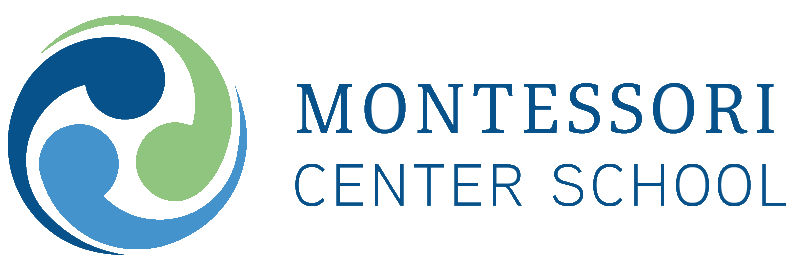Fast Facts: What is Montessori?
Montessori education is an approach to learning that was developed by an Italian physician and educator, Dr. Maria Montessori , more than a century ago—and is now changing the face of education worldwide. Read on to learn more about the key components of a Montessori education from the American Montessori Society.
Montessori Center School Program Levels
- Pre-Primary (18 months – 3 years)
- Primary (ages 3 – 6)
- Lower and Upper Elementary (ages 6 – 9 and 9 – 12)
Key underpinnings:
- Honors the human spirit and the development of the whole child—physical, social, emotional, cognitive.
- It encompasses a view of the child as one who is naturally eager for knowledge.
- It is based on ideals of equity, inclusion, and social justice.
- It also focuses on the care of self, others, and the environment.
Additional distinctive features:
- Classes are multi-age (3-year age span).
- Individual students follow their own interests while also learning from others.
- Time is given to enable students to explore and internalize concepts and ideas at their own pace while working toward individualized learning goals.
- Teachers serve as guides and mentors, systematically observing and assessing students’ progress and providing them with support/tools so that they may take ownership of their own learning and growth.
- Learning takes place across a variety of modalities: visual, auditory, tactile, etc.
Given the freedom and support to question, probe deeply, and make connections, Montessori students grow up to be critical thinkers, and confident, enthusiastic, and self-directed learners and citizens, accountable to themselves, their community, and the world.
There are 5 essential components to a high-quality Montessori program:
- Properly trained Montessori teachers – Our MCS teachers have command of Montessori philosophy, Montessori curriculum, classroom management, and child development.
- Multi-age classrooms – Students benefit from differentiated learning based on abilities, not age. Self-esteem is built on personal accomplishments rather than comparison with same-age peers.
- Use of specially designed Montessori learning materials – Hands-on, interactive, and engaging, they enable students to learn through discovery.
- Student-directed work – Students are intrinsically motivated, and learn about their personal strengths and ability to improve.
- Uninterrupted work periods – Working freely and at their own pace on self-selected activities, students develop concentration, time-management skills, and a love for learning.
To learn more about our academic program, please contact our Director of Admissions, Alyssa Morris, [email protected], 805-683-9383 x104.
Source: American Montessori Society
The post Fast Facts: What is Montessori? appeared first on Montessori Center School.
Programs
Montessori Center School admits students of any race, color, religion, national and ethnic origin, gender identity, and sexual orientation to all rights, privileges, programs and activities general recorded or made available to students at the School. It does not discriminate on the basis of race, color, religion, national and ethnic origin, gender identity or sexual orientation in the administration of its educational programs, admission and tuition assistance policies, and athletic or other school-administered programs. Non-Profit Education Organization, License No. 426205239


